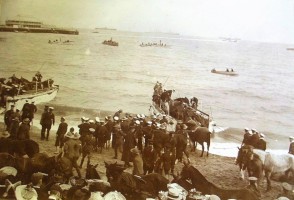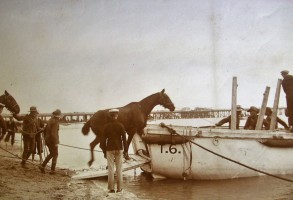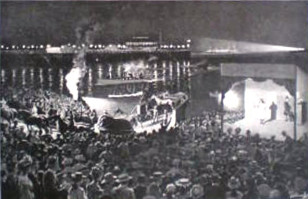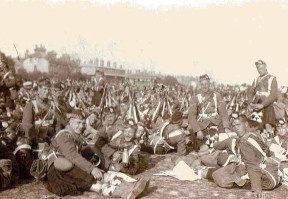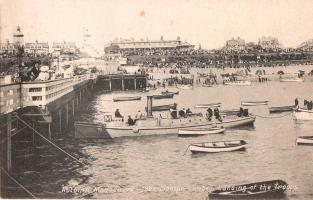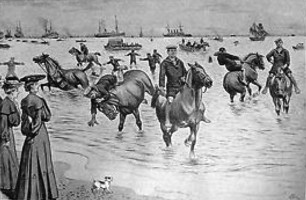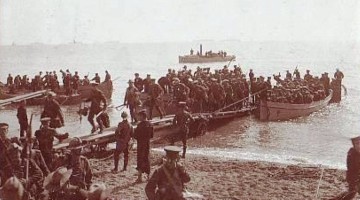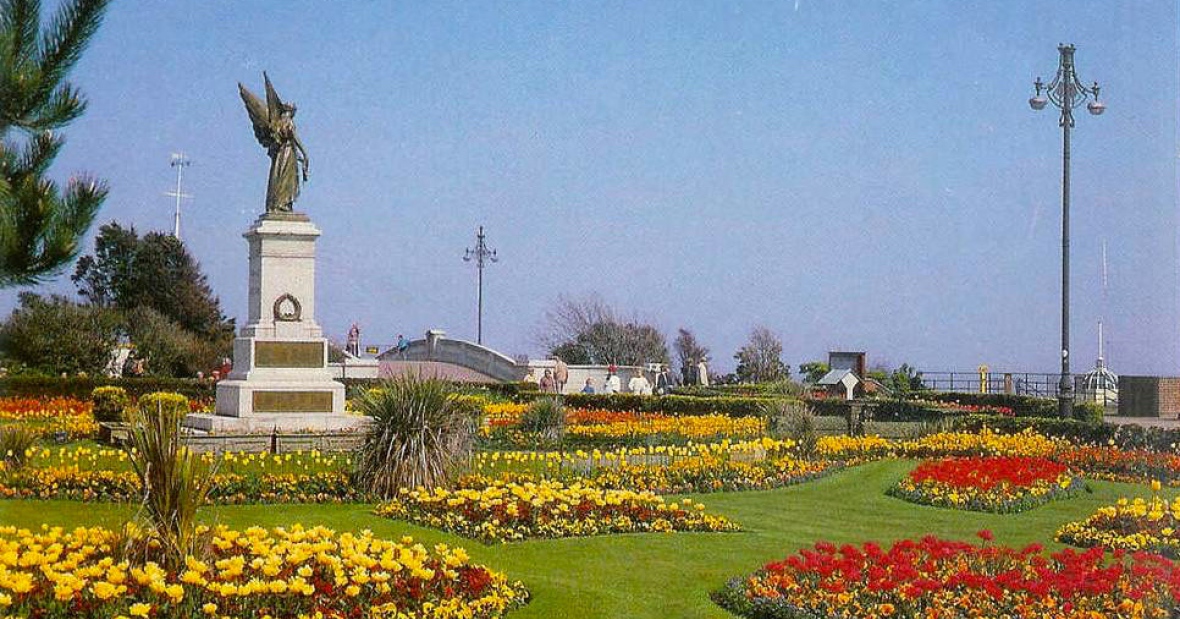
1904 Military Manoeuvres
By Norman Jacobs.
Tuesday 6 September 1904 was a big day for Clacton as it was the day the East Coast Military Manoeuvres began. The idea behind the manoeuvres was to test Britain’s readiness to invade a foreign country should the need arise.
For the purposes of the exercise, England was designated a foreign country defended by the Red Army, which a British Expeditionary Force (the Blue Army) under General Sir John French was attempting to invade. The Duke of Connaught was appointed umpire-in-chief. During the period of the manoeuvres, he stayed at the Grand Hotel in Frinton. It was honour of this visit that Station Road, Frinton was renamed Connaught Avenue.
The manoeuvres had been well publicised beforehand, so that on the due date hundreds of sightseers lined Clacton prom to watch the “invasion” as Clacton had been designated the prime target.
At about 5:30 a.m., the first ships, six cruisers and ten transports, were sighted off the coast. Shortly afterwards, the first troops landed. These were from the 2nd Wiltshires and the 1st Yorkshire Light Infantry, followed closely by the 2nd Royal Fusiliers. It was reported that each man carried a tin of bully beef to “preserve him from starvation in this unfriendly land.”
By about 9 a.m., as the sun dispersed the early morning mist, the onlookers had a magnificent view of the ships stretching away to the east of The Pier, while the two miles between the ships and the shore was a mass of landing craft speeding to and from the beach.
It was also at about this time that the first contingent of horses were landed. The “invasion” continued throughout the rest of the day and into the night when the beach was lit up with searchlights beamed from the cruisers.
By the following morning, the beach was covered with horses and heavy laden wagons plus tens of thousands of soldiers all getting prepared to push on inland. As they began, there were a number of early skirmishes with the Red Army, an early one being at Little Clacton where the invaders took possession of the village by defeating the 5th Lancasters who fell back on Thorpe-le-Soken, where they were again attacked, this time by French’s Cycle Brigade.
On Thursday, the Blue Army “captured” Colchester and by the following day had reached Witham. As the re-embarkation was timetabled to begin the following Tuesday, the Blue Army began to retreat. A heavy engagement took place near Weeley, where Captain Allenby of the Red Army led what was described as a “brilliant” cavalry action.
Once again, the crowds gathered along Clacton Promenade for the spectacle of the re-embarkation, which was also witnessed by General Baden-Powell. By Wednesday 14 September it was all over and the invaders were back on board the ships sailing away for home.
So, did these manoeuvres teach the army anything useful? Not according to the press. Although the British Expeditionary Force was awarded the victory, the London Standard said nothing had been learned from the Boer War and practices were as bad as ever.
Famous Journalist and novelist, Edgar Wallace, writing in the Daily Mail, blamed the Treasury for the “absurd restrictions” it had placed on the manoeuvres. Apparently, the invading force had had to keep to the main roads as the Treasury wanted to keep compensation payments for damage to crops and animals down to a minimum. Wallace dubbed Clacton, “the capital of Letspretendia”.
Even if nothing had been learned, it wasn’t all bad news, as Clacton Council and the local hoteliers and traders were delighted with the crowds and all the national publicity that the manoeuvres attracted, which certainly boosted the number of visitors the following year. Norman Jacobs
Click on photo below to enlarge.

